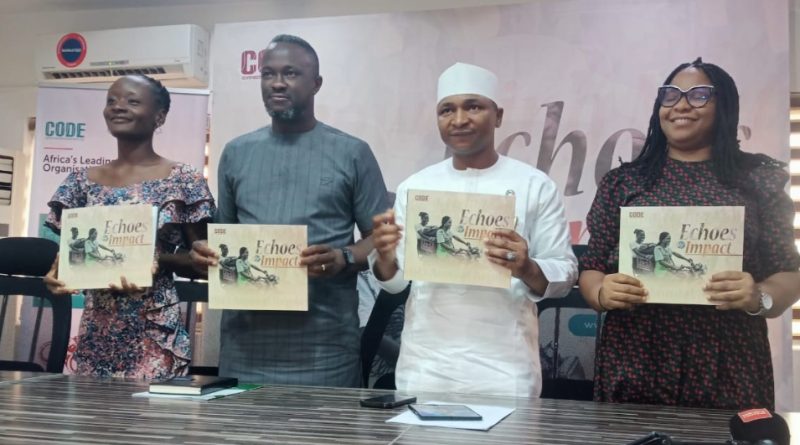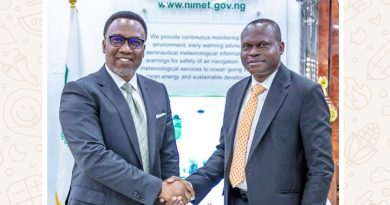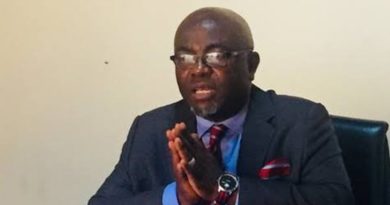Strengthening Nigeria’s Democracy: CODE Launches 2023 Report
Maryam Aminu
Democracy is gradually triumphing in Nigeria. 25 years of uninterrupted democracy in Nigeria is a milestone worth celebrating, but it’s also a moment for sober reflection. By embracing the lessons of our past, harnessing the energy of our youth, and fostering inclusive governance, Nigeria can indeed fulfill its potential as a beacon of hope and inspiration for Africa and the world
As Nigerians marks the 2024 edition of Democracy day celebration, Connected Development (CODE), a leading non-profit organization dedicated to improving governance and transparency in Nigeria, addressed journalists yesterday in Abuja to discuss their ongoing efforts to strengthen Nigeria’s democracy.
The Chief Executive of Connected Development CODE, Hamzat Lawal, said Nigeria is not doing badly after 25 years of uninterrupted democracy.
He made the assertion yesterday while unveiling its 2023 annual report(Echoes of Impact) for transparency and accountability
He expressed optimism that Nigeria is on a journey to nationhood to manifest her greatness in all spheres of development.
CODE Chief Executive called for a united action by every stakeholder in the Nigerian project to help realise the dreams of the founding fathers, expressing profound optimism of a brighter future for all
Since it’s establishment in 2012 Connected Development has been at the forefront of promoting good governance and accountability in Nigeria. Their initiatives aim to bridge the gap between the government and the people, ensuring that citizens are informed and involved in the democratic process. With a focus on transparency and community engagement, CODE has successfully launched several impactful projects across the country.
Lawal highlighted several key initiative CODE conducted to strengthen democracy
“Our goal is to create a platform where every Nigerian can voice their concerns and contribute to national development.”
“We came up with Project Trust. Through this project, we aim to deepen and institutionalize accountability and social inclusion processes, promoting sustainable governance across Nigeria. In partnership with the MacArthur Foundation, DeSPAAC deepened citizens’ interest in government spending and addressed corrupt practices through enhanced citizen engagements”, he said.
“project trust plays a crucial role in ensuring transparency and combating corruption while Open Parly bridges the gap between government and the people by enabling communities to track their elected representatives’ performance, lend their voices, and hold them accountable for citizen-centered decision-making.
“These highlighted projects exemplify our commitment to contributing to the democratic process in Nigeria over the years. However, our efforts extend beyond these initiatives as we continually explore and implement various strategies to strengthen democracy and promote accountability”.
A cornerstone of CODE’s strategy is citizen empowerment. This involves not only educating the public but also providing opportunities for direct involvement in the democratic process.
Initiatives like follow the money, open parly and project trust have already seen success, with numerous community members stepping up to advocate for their rights and hold local officials accountable.
Lawal reiterated that despite the challenges we face, we must remain hopeful and united. “Together, we can work towards a better future for all citizens, where unwavering commitment to freedom, peace, zero hunger, good health, quality education, decent work, equality for all and many more”
Earlier, CODE’s Director Democracy and Governance, Hon. Emmanuel Njoku expressed that most youths are dissatisfied with the current system and are seeking opportunities abroad, emphasizing the need to create incentives for them to stay and invest in Nigeria’s future.
Njoku who noted that the role of youth in Nigeria’s journey cannot be overstated, added that as the future custodians of our nation, young Nigerians hold the key to unlocking Nigeria’s full potential.





